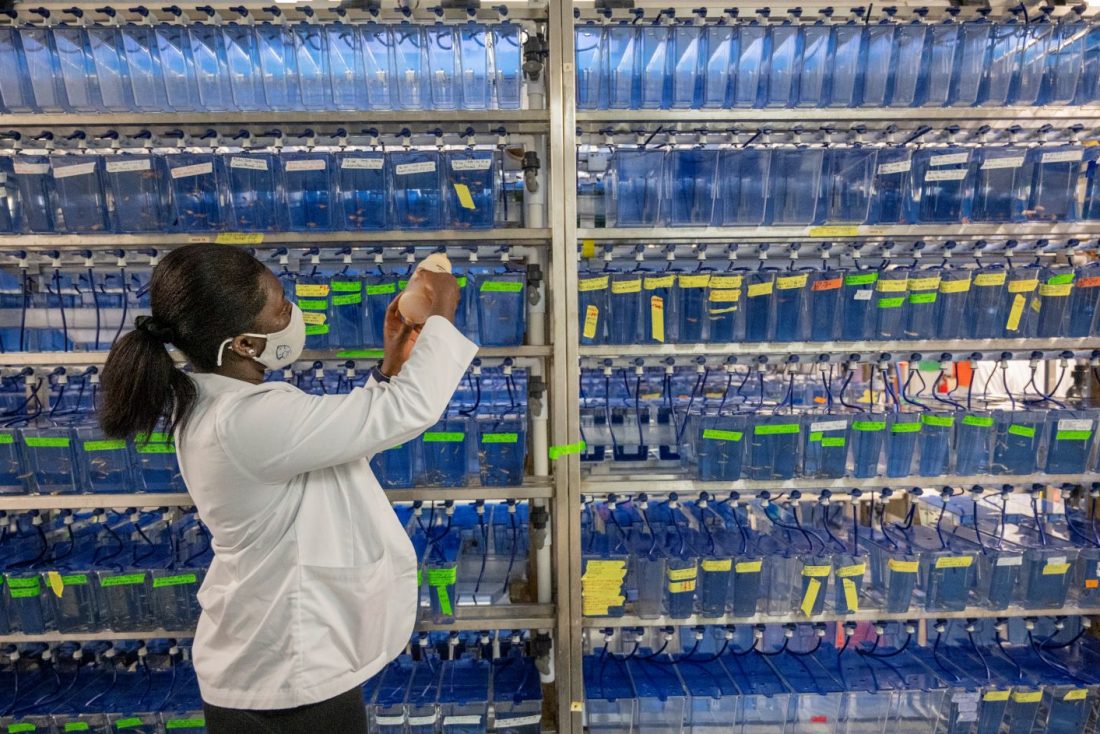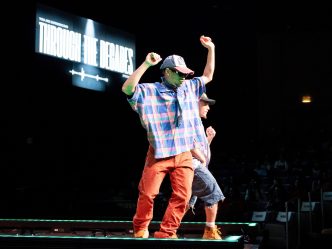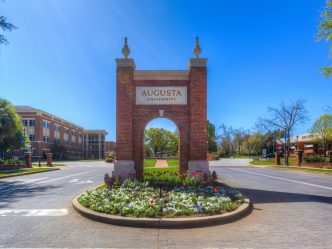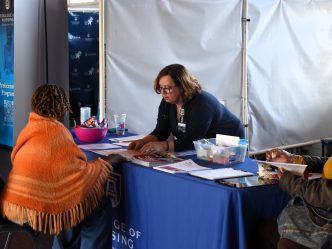Augusta University is now accepting applications for the Student Research Program (SRP), which supports student-led research, scholarship and creative activities.
Students accepted into the SRP, a program that has been offered at Augusta University since fall 2016, are awarded funding to support a scholarly project. This might include a research project, presentation, performance, seminar, workshop or course relevant to their field of study.
The SRP is a partnership between the Office of the Provost and the Translational Research Program (TRP) of the Medical College of Georgia’s Department of Medicine. However, it’s not solely an opportunity for STEM students.
“We in the TRP want students to know that SRP funding is not limited to math, science, engineering or health sciences research. This program is committed to supporting scholarly activity in the arts, humanities and social sciences as well, so student-mentor pairs from the liberal arts are strongly encouraged to apply,” said Dr. Wendy Bollag, co-director of the TRP.
“In fact, the SRP has been impressed with the breadth of research here at AU, with several creative projects coming out from the program in past years. Augusta University is committed to student scholarly activity in all its forms.”
All full-time graduate or undergraduate students at Augusta University are eligible to apply, but they must partner with a full-time AU faculty mentor on the project. In total, up to 20 projects will be funded up to $1,000 each.
Applicants are strongly encouraged to include project deliverables in their submission, including plans for publication, presentation, performance, exhibition, portfolios, apprenticeships, internships, video documentary, attendance of conferences or other discipline-specific metrics for scholarship.
Emma Geister, a double Jaguar with a Bachelor of Science in Cell and Molecular Biology and a Master of Science in Biomolecular Science from Augusta University, has been supported by SRP funding over the course of her ongoing research on chronic pancreatitis.
“I enjoy working with the Student Research Program because each member is genuinely invested in the success of my study. In addition to financial support, they provide feedback on my project and look forward to receiving updates from our lab,” said Geister, who is currently applying to medical schools.
Chris Narain, a nursing PhD student at Augusta University, used SRP funding to support publication of his research on chronic pain.
“The SRP has supported me in the publication of several manuscripts throughout the course of my academic progress, with publication fees fully funded by awards received through the program,” said Narain.
Projects funded to specific student-mentor pairs in previous cycles may be continued (with the same or a different student-mentor pair); however, a progress report (including details of how the previous funds were spent) will be required prior to consideration of the proposal. Continuation projects, or the same student-mentor pair with a different project, will be treated similarly. Note that priority will be given to new projects, but if funding allows, continuing projects will be considered.
To begin the application process, each student must request a studio, which is a 30-minute Microsoft Teams meeting between the student-mentor pair and members of the TRP working group. Note that both student and mentor must be present for the studio or the meeting will be canceled.
Applications opened Sept. 6 and are due by 5 p.m. Sept. 30. Email Brandi McCorkle with questions about the program.
 Augusta University
Augusta University




